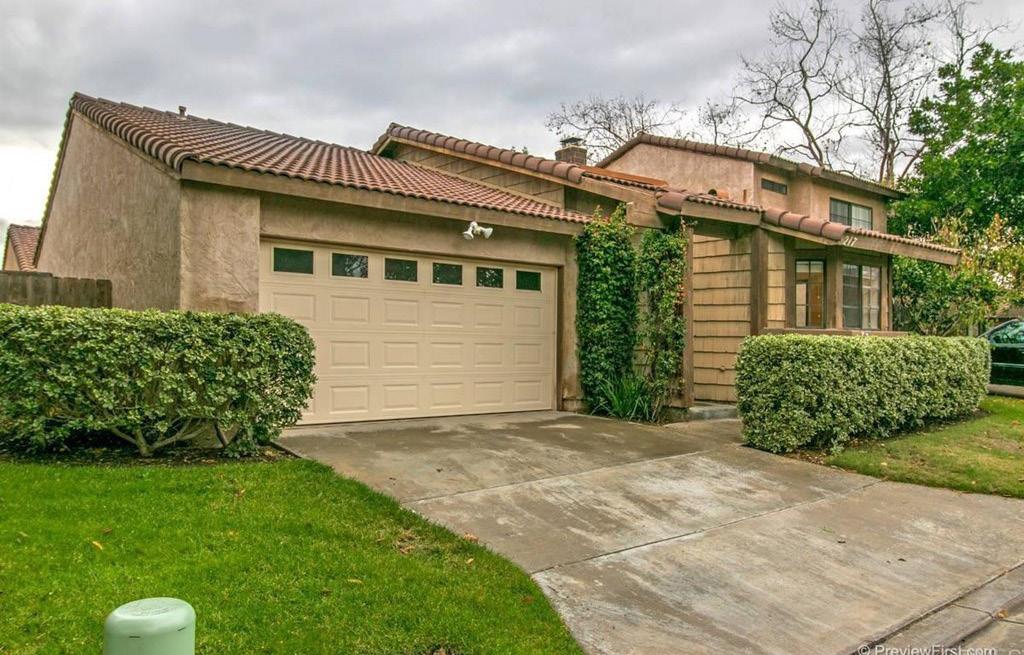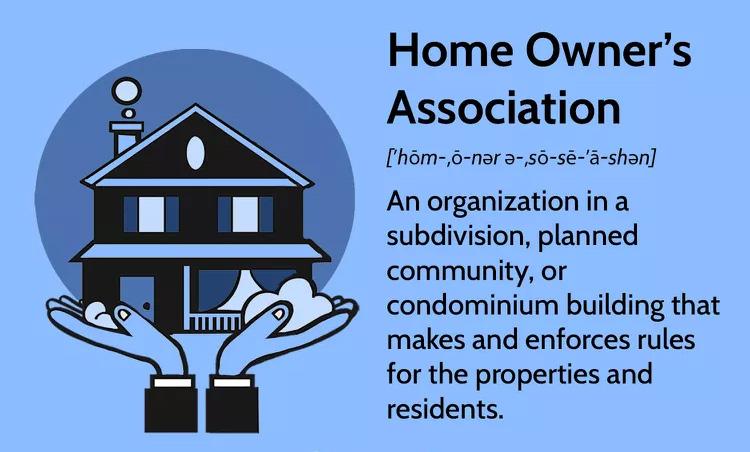
619.494.4436
Dianna@DiannaMeza.com
DiannaMeza.com


619.494.4436
Dianna@DiannaMeza.com
DiannaMeza.com
Dianna Meza, a native San Diegan, began her successful career in mortgage and Real Estate in 2004. In addition to being an expert and experienced, she possesses extensive knowledge in lending and finance, which has propelled her to the top of her field in Real Estate and has given her the extra edge in negotiations and transactional navigations for her clients.

Her relationship with you begins with a detailed consultation of the home selling or home buying process step by step, and the state of the market today. She has a gift of listening very intently so that she addresses all your wants, needs and concerns. This consultation will provide you with the confidence and peace of mind you need to proceed successfully in the process, while affording Dianna the ability to customize the perfect plan of action to help you target your real estate goals while providing you service with a personal touch.
Dianna has built her business on relationships and believes that her clients always come first. She is passionate about Real Estate. Her dedication to keeping current with market trends ensures that clients are well-educated in all aspects of the transaction process.
When asking Dianna about how she treats her clients, she said “Too many times we come across agents who don’t take the right amount of time with their clients.” Sellers and Buyers need to be educated and communicated with throughout the entire process.
Dianna and her team will ensure that every question is answered. Her goal is that the home selling or home buying experience is an enjoyable one. That her clients are happy after they close escrow! After escrow closes, she keeps in touch long after and is always willing to be a resource.
This is not an exhaustive list but a few things you can expect when working with Dianna Meza and Associates is honesty, availability to clients, hard work, excellence, professionalism and having a team to assist her with sellers and buyers meet their goals.
Dianna is deeply committed to serving her community and church. She believes that “It is through serving others that we find true fulfillment.” When she is not working, you can find her enjoying all the beauty and fun this wonderful city has to offer with her family and friends, whether it is strolling along the peaceful ocean, gazing at the breathtaking sunsets, or dining at one of the city’s delicious eateries.
Dianna spent months working with me to find the perfect place. She was professional, patient and knew, before I did, just what would work for me. I love my Liberty Station home, neighbors and neighborhood. Thank you, thank you Dianna!
Dianna proved to be an outstanding agent! In this difficult time of low volume in our modest price range, Dianna was able to find the perfect property for us. She responded quickly to communication and was able to clearly explain all aspects of the purchase process. I highly recommend her and will call upon her expertise in the future!
Lynn R. Becky G.My wife and I own a few properties that we use as rental income. Previous acquisitions we’d go directly to the selling Realtor and work directly with them. This did require a lot of work on our side. We were constantly screening properties in order not to miss out on any good deals. Prior to purchasing our most recent property though we got in touch with Dianna Meza (just by chance). We figured we’d let the Realtor do all the hard work and just ping us when she had something of interest. Dianna was fantastic. She has the patients of a saint. When we eventually found the perfect property she gave us very good advice in order to get the short sale. She was on top of everything. Our previous experiences involved major blunders and constant resubmittals of documentation. In this case Dianna took care of everything without a glitch. Considering it was a short sale we experienced no hassle at all. My assumption is that Dianna dealt with all the hassle. Dianna is very personable and sincere. She’s kept in touch with us long after the purchase even though she knows we aren’t looking for any new property. She’s just genuinely nice. I’ve recommended Dianna to all my friends who are looking for properties.


 Robert and Carin L.
Robert and Carin L.
We have used Dianna in multiple home buying/selling transactions. She is very professional regarding every aspect of the process. She goes the extra mile to get things done for her customers and I would recommend her services to anyone looking for a real estate specialist, whether buying or selling.
Tony and Sue A.Dianna has such a lovely, kind, and caring personality that one immediately feels she is trustworthy. Her local knowledge is exemplary, hardly ever having to resort to GPS. Her explanation of the process from start to finish is professionalism personified. Dianna is always available to answer questions and give advice via telephone and/or email and on the rare occasion she can’t immediately pick up she will prioritize appropriately. It appeared that her negotiation was first class from my experience.
Jenn P.Dianna Meza was the best Realtor we’ve ever worked with. Dianna was always ahead of the game and very attentive to our needs and requests. She is very knowledgeable and helped us understand the various options available to us. Her patience and attention to detail is amazing. She helped us get the home we wanted and helped expedite a normally long dragged out process. Every time we spoke to Dianna I felt that she was looking out for our best interest and she had our backs. I highly recommend her to anyone who needs an excellent Realtor. Thank you Dianna, we love our new home and you helped make it possible. Lupe and Steven S.



As an ex-pat Brit buying my first property in San Diego I had no idea of the Californian process or market beyond what I’d gleaned from a cursory search of the internet. Thankfully for me. I followed up on a recommendation to approach Dianna for help. Her patience with some of my questions was also greatly appreciated, as was the fact that she responded immediately to phone calls and emails and was with me the whole way. All in all, a wonderful service.


 Steve W.
Steve W.
Dianna is the consummate professional with a comprehensive knowledge base of the real estate business/market. She is attentive to the needs of her clients which corresponds with the prompt/complete results received. She completed the sale of my home and initiated the process by explaining all matters involved in layman’s terms without a pressure packed sales pitch. Each step of the way she maintained contact with me, insured that my needs were met and was very thoughtful about my financial well being throughout an arduous, sometimes complex ordeal. Clearly, Dianna enters contractual agreements with her clients with dedication and a commitment that is unmatched by others in her field. I have been involved in numerous real estate transactions since 1972 and have never felt safer or more at ease. Undoubtedly, I will continue to need her highly competent services in the future and will not hesitate to contact her whenever I buy or sell real property. Anyone else who intends to conduct similar business with a successful outcome should do likewise!
Carol A.Dianna did an AMAZING job representing us as we purchased our home in Point Loma. She is a First Class Professional and definitely looks at her career in real estate as a job, not a hobby. We were both very impressed with her and would highly recommend you reaching out to her to represent you.
Richard and Cindy M.We just recently bought our dream home, and we definitely could not have done it without Dianna. Her responsiveness to all our needs, queries, and even wants was just impeccable. What could take days or weeks she made happen in hours or even in minutes. As a first time home buyer, Dianna made it a breeze and I have also learned a lot about the process because of her. Her genuine personality and responsiveness is what sets her apart from other Realtors I have encountered. I have reached out to her back in 2016 and since then she would always keep in touch but never push. Buying a home is not easy, and it can be very stressful, specially during this time, but knowing we had Dianna by our side we were at peace. Words are not enough to express how amazing she is as a person and as a Realtor. Mia

Dianna helped find the perfect home for me and my son (and our dogs & kitty) in San Diego. She is incredibly knowledgeable about the San Diego (and surrounding) region, the housing market and has a knack for helping you figure out and find exactly what you are looking for (even if you don’t think you know what that is!). Throughout the entire process of working with Dianna, I never felt rushed or pushed in a direction that felt uncomfortable. She continuously reassured me we would find the right place, and she was absolutely correct. I highly recommend Dianna. You will be happy you decided to work with her!.
Jennifer W. and Cosimo A.I recently worked with Dianna on the purchase of my condo and it was a very pleasant experience. She was very professional with a personal touch. I felt that she genuinely cared about getting me into a place that was a good fit for me that matched my budget. I would highly recommend using Dianna for all your real estate needs.

 Allison B.
Allison B.

I have worked with many Realtors over my 18-year career in the mortgage business. Dianna is hands down one of the best Realtors that I’ve ever worked with. Her level of service and expertise is as good as it gets. She worked in the mortgage industry prior to becoming a Realtor, which gives her experience and knowledge that most Realtors do not have. Additionally, Dianna always puts her clients best interest first. As a master negotiator, with her high attention to detail, you’d be hard pressed to find a better Realtor in San Diego County to represent you. Roger
K. - Peer ReviewIf you are looking for a true professional, Dianna is the best! We had just moved to San Diego, and really had no idea what area we wanted to live in. We randomly grabbed a real estate flyer, and the next thing we knew, we were living in the perfect area, and also living in the perfect home! Dianna was warm and very much in tune with our needs. She went out of her way to get us a showing, and when we decided we wanted to make an offer on the home we had seen, she negotiated late into the night. Another couple wanted to put an offer on the condo we wanted, but in the end, our offer was accepted because we had the better realtor. Thank you, Dianna, for going above and beyond for us! You are much appreciated!
Wally and Jill L.Dianna is the best real estate agent I’ve ever dealt with. Pretty much willing to do whatever it takes to help get you the home you want. Would highly recommend her to anyone buying a home in San Diego.

 Roberto S.
Roberto S.
A long time since I’ve gone through the home buying and loan process, I have to admit I was a little intimidated with re-learning the system all over again. My honest concern throughout was “not knowing”, putting myself in vulnerable situations, with the concern of “loosing out” .. time and money. Dianna walked me through the entire process, educating and preparing me for each progressive step. This gave me peace of mind, especially as I was also simultaneously dealing with my escrow and lender. Dianna was always super friendly, understanding and flexible. More importantly, she was always accessible. Her responsiveness and availability via email and text made it easy to address deadlines and concerns. Even when I had unrelated items/concerns, she was always helpful to provide context and recommendations for managing the overall home buying process. I could not have asked for a better representative and supporting staff. The team was always on their game, inspiring confidence at each step of the process. With my loan being a VA Loan, I was anticipating potential issues... but that never happened. (Most veterans I know that have gone through the VA loan route have had issues, and I was afraid of the same.) She even advised me that the condo complexes need to be VA approved in order for me to be able to get VA financing and not fall out of escrow. With only select complexes being VA approved Dianna was able to verify the complex was approved enabling us to filter out properties and not spend time. All things considered, I could not have asked for a better home buying experience.
 Laura M.
Laura M.
Dianna is an honest,talented,kind,helpful and clearly so experienced Realtor. Not only she was very well organized, but also her kind attention,pleasant behavior and personality, her great knowledge of the buying process and her awesome negotiation skills made my condo buying experience a really true pleasure.In spite of her busy schedule working,she worked so hard for me as if I was her only client.I was very pleased with her.She did an excellent job buying my condo for me without wasting any time and I really appreciate all her kind attention toward me.
 Alireza D.
Alireza D.
No two people are alike, just as no two homes are alike.
Getting to know you helps us better understand what is important to you in a home and what your next steps in life are. Through years of dedication, we understand that our clients’ needs are the most important part of the journey. We will get to know your preferred method of communication, what strategies you are most comfortable with, your objectives, and how we can best serve you.


Buying a home is one of life’s most important investments and exciting adventures. As your Coldwell Banker West sales associate, I will guide you every step of the way by:
• Helping you get pre-approved and establishing your purchase power.
• Helping you articulate actionable home preferences.
• Helping you determine your offer.
• Negotiating the offer and contract.
• Facilitating the financing process.
• Initiating the property evaluation and inspection process.
• Explaining the title search process.
• Preparing you for the close of escrow.
The term REALTOR® is a registered trademark that identifies a real estate professional who is a member of the National Association of REALTORS® and subscribes to its strict code of ethics. On the next few pages are some important reasons why it pays to work with a REALTOR®
You’ll have an expert to guide you through the process.
Buying or selling a home requires disclosure forms, inspection reports, mortgage documents, insurance policies, deeds, and multi-page settlement statements. A knowledgeable expert will help you prepare the best deal and avoid delays or costly mistakes.
objective information & opinions. REALTORS® can provide local community information on utilities, zoning, schools, and more. They will also be able to provide objective information about each property. A professional can help you answer these two important questions: Will the property provide the environment I want for a home or investment? Will the property have resale value when I am ready to sell?
Find the best property available. Sometimes the property you are seeking is available but not actively advertised, and it will take some investigation by your REALTOR® to find all available properties.

When you partner with a professional REALTOR® who is dedicated to finding you a home that meets your needs, you free up your time!
Benefit from their negotiating experience.
There are many negotiating factors, including but not limited to price, financing, terms, date of possession, and inclusion or exclusion of repairs, furnishings, or equipment. In addition, the purchase agreement should provide a period of time for you to complete appropriate inspections and investigations of the property before you are bound to complete the purchase. Your agent can advise you as to which investigations and inspections are recommended or required.

Real estate has its own language. If you don’t know a CMA from a PUD, you can understand why it’s important to work with a professional who is immersed in the industry and knows the language.
Most people buy and sell only a few homes in a lifetime, usually with quite a few years in between each purchase. And even if you’ve done it before, laws and regulations change. REALTORS®, on the other hand, handle hundreds of real estate transactions over the course of their career. Having an expert on your side is critical.
Buying and selling is emotional.
A home often symbolizes family, rest, and security — it’s not just four walls and a roof. Because of this, home buying and selling can be an emotional undertaking. And for most people, a home is the biggest purchase they’ll ever make. Having a concerned but objective third party helps you stay focused on both the emotional and financial issues most important to you.
Every member of the NATIONAL ASSOCIATION of REALTORS® makes a commitment to adhere to a strict Code of Ethics, which is based on professionalism and protection of the public. As a client of a REALTOR®, you can expect honest and ethical treatment in all transaction-related matters. It is mandatory for REALTORS® to take the Code of Ethics orientation and they are also required to complete a refresher course every four years.
As your representative, your agent prefers to work as your buyer-broker. We will work in your best interest. All Coldwell Banker West REALTORS® have completed an advanced course in buyer-broker agreements.
These are just a few of the many things a REALTOR® can do as a buyer-broker:

• Prepare and interpret market analysis for the property you are buying (determines if the price and terms of the listed property are correct).
• Analyze and compare pluses and minuses of different properties you are considering.
• Discuss the value variables of different neighborhoods (what neighborhoods hold their property values).
• Provide you with information that is conveyed about the seller’s motivation.

1. Your income.
2. Your available assets for the down payment, closing costs, and any cash reserves required by the lender.
3. Your outstanding debts.
4. Your credit history.
5. The type of mortgage you select.
6. Current interest rates.
Your buyer-broker can provide you with a list of the best lenders in the business who can help determine your purchasing power by analyzing your financial strength. Before you begin searching for the home of your dreams, this analysis and your loan preapproval will help you focus your house hunting efforts.
A REALTOR® should provide you with a Buyer’s Net Sheet, which will include down payment money, title search, recording fees, etc. This should give you a good idea of your money outlay. Each home purchase/sale is different.
Getting to know you via video chat is our first step in finding your home. This helps me better understand what is important to you in a home.
After determining your home preferences and budget, I will continually check the market and send you potential homes that meet your criteria.
I will walk you through the home(s) virtually, share market data, and provide expertise to guide your analysis.
Once you have signed the necessary documents, you will wire your earnest money digitally and securely.
Closing documents will be signed with a mobile notary and all access materials and information will be transferred safely and remotely.
You will electronically sign all documents, offers, and disclosures from the comfort of your own home.
The inspectors will send you a detailed inspection report with specific photos and descriptions, so you will get to know every inch of the property.

It’s time for you to move in! Once escrow is finalized, I will transfer keys and any necessary access information.
Our virtual home buying process assures that you experience one of life’s biggest milestones in a convenient and safe way. As your Coldwell Banker West REALTOR®, I will guide you every step of the way.
Amendments: A change—either to alter, add to, or correct—to part of an agreement.
Appraisal: An estimated property value resulting from analysis of facts about the property; an opinion of value.
Assumption: When the buyer accepts responsibility for liens or other obligations attached to the property title. In some cases, this means the new buyer takes over the old mortgage.
Beneficiary: The recipient of benefits, often from a deed of trust; usually the lender.
Close of Escrow: The date when documents are recorded and title passes from seller to buyer. On this date, the Buyer becomes the legal owner, and title insurance becomes effective.
Comparable Sales: Sales that have similar characteristics as the subject real property, used for analysis in the appraisal. Commonly called “comps.”
Deed of Trust: An instrument used in many states in place of a mortgage.
Deed Restrictions: Provisions contained in deeds to limit the use of the property.
Earnest Money Deposit: Down payment made by a purchaser of real property as evidence of good faith; a deposit or partial payment.
Easement: A right, privilege, or interest, limited to a specific purpose that one party has on land owned by another.
Hazard Insurance: Real estate insurance protecting against fire, some natural causes, vandalism, etc., depending upon the policy. Buyer often adds liability insurance and extended coverage for personal property.
Impounds: A type of trust account established by lenders for the accumulation of the borrower’s funds to meet periodic payments of taxes, mortgage insurance premiums; and/or future insurance policy premiums.
Legal Description: A description of land recognized by law, based on government surveys, spelling out the exact boundaries of the entire parcel of land. It should thoroughly identify a parcel of land that cannot be confused with any other.
Lien: A form of encumbrance that usually makes a specific parcel of real property the security for the payment of debt or discharge of an obligation for example, judgments, taxes, mortgages, deeds of trust.
Mortgage: The instrument by which real property is pledged as security for repayment of a loan.
PITI: A payment that combines principal, interest, taxes and insurance.
Power of Attorney: A written instrument whereby a principal gives authority to an agent. The agent acting under such a grant is sometimes called “attorney-in-fact.”
Purchase Agreement: The purchase contract between the buyer and seller. It is usually completed by the real estate agent and signed by the buyer and seller.
Quitclaim Deed: A deed operating as a release, intending to pass any title, interest, or claim which the grantor may have in the property, but not containing any warranty of a valid interest or title by the grantor.
Recording: Filing documents affecting real property with the County Recorder as a matter of public record.

Escrow is the process where parties (buyers/sellers) transfer real estate documents, funds, and other valuable items with a neutral third party like an escrow agent. These items are held in trust by the escrow agent until a specific condition or event takes place according to mutual and specific instructions from both parties. In other words, escrow is the repository for your receipt, exchange and distribution of items and documents that are needed in order to transfer or to finance real estate transactions. Once the necessary events occur or the conditions have been met, the distribution, sale, or transfer takes place. When all elements necessary to complete the transaction have happened, the escrow is then closed.


A homeowner association (HOA) is an organization in a subdivision, planned community, or condominium building that makes and enforces rules for the properties and residents. Those who purchase property within an HOA’s jurisdiction automatically become members and are required to pay dues, which are known as HOA fees. Some associations can be very restrictive about what members can do with their properties while others may give residents more freedom.
• A homeowner association is an organization that makes and enforces rules and guidelines for a subdivision, planned community, or condominium building.

• HOA members are the residents of the subdivision, community, or building.
• Some communities require mandatory membership for individuals that purchase property in the zone.
• Homeowner associations are run by a board of directors and typically collect monthly or annual fees to pay for common area maintenance and the upkeep of facilities.
• Homeowner associations may impose fines on non-compliant homeowners.
Homeowner associations are usually formed within communities or neighborhoods of single-family homes or multiple-unit buildings, such as townhomes or condominiums. An HOA is typically established to make and enforce rules regarding the properties within the jurisdiction. Associations are comprised of and run by the community’s residents. Membership is usually a requirement to buy a home within a community where an HOA has been established.
An HOA usually has a board of directors or governors. These groups are elected to enforce and oversee the HOA’s rules and regulations. An HOA typically describes its rules as restrictive covenants in a document called a Declaration of Covenants, Conditions, and Restrictions. CC&Rs set certain conditions for owners about the maintenance of their properties.
These conditions sometimes include structural restrictions, such as the type of fences or landscape allowed. But they may also include more minor aesthetic choices like the color of paint on a house. A CC&R document may also outline the penalties for violating the guidelines set forth in the agreement. These penalties can take the shape of fees or forced compliance. In some cases, it may even be as drastic as litigation.
Some HOAs can wield significant financial and legal power over the property owners in their zone. HOAs collect monthly or annual HOA fees. These fees depend on a number of factors, including:
• Type of property
• Number of properties in the group
• Location
• Amenities offered
• Operating expenses
The fees are typically between $200 to $400 per month, but they can range anywhere from less than $100 to upwards of $10,000 in luxury neighborhoods or communities. HOA fees also often contribute to the association’s reserve fund, which is set aside for major renovation projects or emergency use. In addition to regular fees, HOAs can also impose special assessments on homeowners when the association lacks sufficient reserves to pay for unexpected repairs on common areas, such as sidewalks or parking lots.
The HOA’s board is usually responsible for the organization’s finances. As such, it oversees the collection and management of funds. Along with setting dues and assessments, the board can slap fines on homeowners who break the rules or damage the common areas. In addition to imposing penalties, HOAs can also place a lien on a property if a homeowner falls seriously behind on their dues.
Most HOAs are incorporated. This means they are subject to state laws. However, some states consider condominium-based HOAs (often called condominium communities) and organizations governing cooperatives (called co-op boards) to be distinct entities from HOAs.
This distinction is made on the assumption that the property interests of these organizations differ. As a result, the designation community association serves as a broader, umbrella term that encompasses HOAs, condominium communities, and co-op boards.
However, an HOA is distinct from a property owners’ association. This organization is a more broad term that usually refers to a group of people who want to better their community and the real estate values of the property in their community. The main difference between them and HOAs is that property owners’ associations may include anyone in the community with an interest in the value of the community’s real estate, including individuals who aren’t homeowners.
358,000
The number of HOAs in the U.S. as of 2021, according to the Foundation for Community Association Research. A trade organization/lobbying group, the foundation estimates that 74.2 million Americans reside in a community association neighborhood or property.
The HOA provides regulations and guidelines for its members. These standards are upheld with the aim of preserving and enhancing the community’s property values. The guidelines are often appearance-oriented, so they deal with regulations for the cleanliness of the property, the condition of the property, and any repairs done to the property. Usually, the guidelines for HOAs are designed to help ensure a uniform appearance for all the properties included in the association’s zone.
The HOA management will typically provide additional services for its members in exchange for their HOA fees. These amenities are available for all HOA members and may include:
• Landscaping
• Parking lots
• Swimming pools
• Tennis courts
• Party spaces
• Snow removal
Some HOA fees may also cover the cost of trash collection and certain utilities.
On a more theoretical level, HOAs are symbolic of self-governance and democracy for certain individuals. This belief may stem from the idea that the best people to manage a community are the people living in it as opposed to a landlord who doesn’t live on the premises.
One disadvantage of an HOA is the high cost of the association fees, which could act as a deterrent for some prospective buyers. Also, the HOA rules and regulations can seem unreasonable, arbitrary, or too restrictive for some homeowners, who may want the freedom to customize their properties.
HOA board members are normally volunteers, and they may not be properly trained to manage real estate, deal with complex financial issues, or unite a disparate group of people for a common cause. Because the leadership of HOAs must reach a consensus when they are making decisions about maintenance and upgrades, it is also possible that there may be conflicts among HOA members who disagree.
Pros
• Set and enforce community rules
• Protect property values
• Provide services, amenities, and facilities
• Offer self-governance
Cons
• Impose fees, dues, and assessments
• Maintain restrictive regulations
• Operate inefficiently
• May be run amateurishly or ineptly
Individual homeowners may conflict with their HOAs. One thorny issue, in particular, relates to the installation of solar panels. HOA boards often don’t like them, fearing they hurt property values. In 23 states, they’re allowed to forbid homeowners from adding them to their residences.
In 2020, an electrical engineer residing in Blaine, Minnesota, applied for permission to add solar panels to his house. In October of that year. The HOA rejected his proposal, citing aesthetic concerns (the panels were too visible from the street) and the lack of established guidelines for rooftop solar in the association’s bylaws.
The electrical engineer joined a group of homeowners and solar advocates who are asking Minnesota lawmakers to support a bill that would allow homeowners associations to regulate but not ban the installation of solar thermal panels on single-family homes. Introduced in the Minnesota House of Representatives in early 2021, it’s one of a series of similar bills proposed since 2014 but never passed.
A homeowner association is an organization tasked with governing the affairs of a real estate development owned by multiple parties, such as an apartment building. HOAs are responsible for tasks such as ensuring building maintenance, deciding on whether to pursue larger renovation projects, and drafting/enforcing the building’s bylaws.
In order to fund its operations, HOAs charge their members monthly HOA fees, typically in the range of $200 to $400 per month. They also have the authority to enforce the community’s bylaws, such as by imposing fines on residents who refuse to comply.
HOAs can benefit individual owners by providing necessary management services. For example, without an HOA the owners of an apartment building would need to coordinate among themselves to decide on common problems such as building-wide garbage removal, building repairs, and community policies. This could be very time-consuming for residents and could result in conflicts and disagreements between owners. On the other hand, HOAs can also create problems for owners to the extent that the owner disagrees with the HOA’s community bylaws or spending decisions.
Individual HOAs have different levels of legal powers, depending on how they were designed. However, HOAs generally have the legal authority to create and enforce community policies, such as whether to allow smoking, pets, or rentals in the building. HOAs also decide on budgets for the building and have the authority to charge monthly or one-time fees to their members. If a member refuses to pay these fees or to comply with the community policies, HOAs can impose a range of penalties. In many cases, these penalties can include monetary fines, the restriction of community privileges, and even litigation.
Owning a home comes with many rights and responsibilities. But if you own a townhome or condo or are part of a specific community, you may be part of a homeowner association. Being part of these communities can be beneficial because they often take care of some of the nitty-gritty of homeownership, such as property maintenance, utilities, landscaping, and snow removal. But keep in mind, though, that these organizations can be restrictive by setting boundaries on what you can and can’t do with your property—all for a fee.
Parties
Two or more persons
Division Ownership can be divided into any number of interests equal or unequal
Creation
One or more conveyances (law presumes interests are equal if not otherwise)
Two or more natural persons Spouses or domestic partners Spouses or domestic partners
Ownership interests must be equal
Ownership interests must be equal Ownership interests must be equal
Single conveyances (creating identical interests; vesting must specify joint tenancy)
Possession & Control Equal Equal
Transferability
Each co-owner may transfer or mortgage their interest separately
Presumption from marriage or domestic partnership or can be designated in deed
Single conveyance and spouses or domestic partners must indicate consent which can be on deed
Liens against one owner
Unless married or domestic partners, co-owner’s interest not subject to liens of other debtor/ owner but forced sale can occur
Each co-owner may transfer his/her interest separately but tenancy in common results
Co-owner’s interest not subject to liens of other debtor/ owner but forced sale can occur prior to co-owner’s/ debtor’s death
Both spouses or domestic partners must consent to transfer or mortgage
Both spouses or domestic partners must consent to transfer or mortgage
Entire property may be subject to forced sale to satisfy debt of either spouse or domestic partner
Entire property subject to forced sale to satisfy debt of either spouse or domestic partner
Death of co-owner
Decedent’s interest passes to his/her devisees or heirs by will or intestacy
Decedent’s interest automatically passes to surviving joint tenant
Decedent’s 1/2 interest passes to surviving spouse or domestic partner unless otherwise devised by will
Possible Advantages/ Disadvantages
Co-owners interests may be separately transferable
Right of survivorship (avoids probate); may have tax disadvantages for spouses
Qualified survivorship rights; mutual consent required
Decedent’s 1/2 interest automatically passes to surviving spouse or domestic partner due to right of survivorship
Right of survivorship; mutual consent required for transfer; surviving spouse or domestic partner may have tax advantage

1. Why are you buying? For your primary residence, secondary, investment, etc.?
2. What are your plans for your current home?
4. What’s your time frame?
5. What areas are you interested in?
6. Are you working with a lender, and have you obtained a pre-approval?
8. What are the most critical things you’re looking for in an agent?
9. Is there anyone else involved in your home buying process?
10. What is your ideal living situation? (Single family home? Townhome? Condo?)
11. What are the general home specifications you are looking for? (# of bedrooms, # of bathrooms, square footage, etc.)
12. What are your “must-haves” versus “wants” in a home?
11. In which ways do you prefer to communicate (text, email, phone, etc.) and how often would you like to be communicated with?
Please take a moment to complete this home preferences worksheet.

Please write down your preference to each feature then rate from 1 -(No Importance) to 5 - (Must Have)
The more I know about your preferences, needs, and priorities, the better I will be able to focus our search on properties that most closely match your criteria.
Remember, unless you are building your dream home from the ground up, there are often compromises to consider when deciding whether or not you will be satisfied with a given property.

